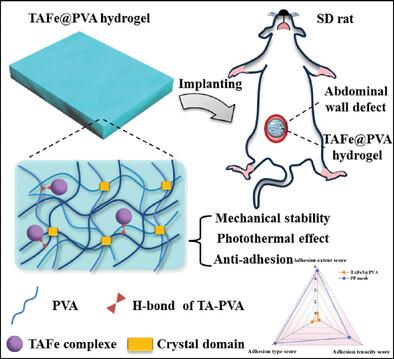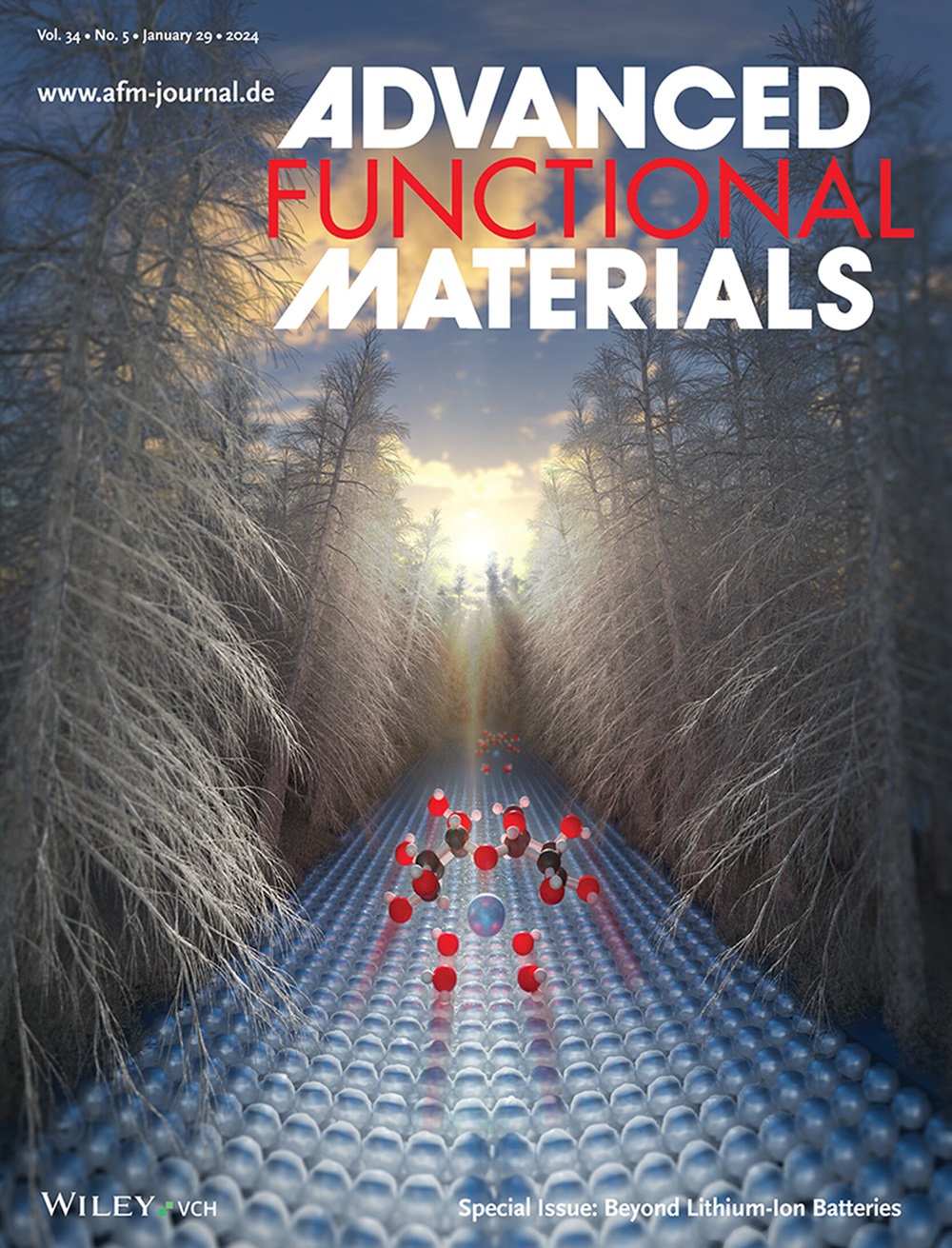Negative Swelling and Mechanical Self-Enhancement TAFe@PVA Photothermal Hydrogel Mediated Via Semi-Crystallization for Medical Implants
IF 18.5
1区 材料科学
Q1 CHEMISTRY, MULTIDISCIPLINARY
引用次数: 0
Abstract
Medical implants, important consumables, significantly promote patients’ healthcare, but still face challenges of foreign body responses and bacterial infection. Hydrogels can be ideal alternative materials, however, a few of them can meet the requirements. Herein, a TAFe@PVA photothermal hydrogel integrating with negative swelling, long-term stability, antibacterial, anti-adhesion, and tissue mechanical matching is developed to solve these issues. The TAFe@PVA hydrogel is crosslinked by H-bonds and microcrystal domains which both can be enhanced by cations or anions based on Hofmeister effect, showing unique negative swelling and long-term mechanical self-enhancement performances in the physiological fluid. Attributing to self-polymerization of tannic acid (TA) and negative swelling of polyvinyl alcohol (PVA) molecular networks, TAFe complexes can be strongly locked in PVA molecular networks, reaching long-term photothermal stability. The TAFe@PVA hydrogel also exhibits great biocompatibility, anti-oxidation, anti-adhesion, and anti-bacterial performances, comparing to the traditional implant material. Since the TAFe@PVA hydrogel can better match with skin tissues, fewer macrophages and myofibroblasts are activated, which depresses unexpected foreign body responses. Finally, the TAFe@PVA hydrogel as the implant can effectively solve abdominal adhesions after abdominal operation and promote defects healing. This study introduces a promising hydrogel implant, which potentially extends hydrogels to wider medical applications.

求助全文
约1分钟内获得全文
求助全文
来源期刊

Advanced Functional Materials
工程技术-材料科学:综合
CiteScore
29.50
自引率
4.20%
发文量
2086
审稿时长
2.1 months
期刊介绍:
Firmly established as a top-tier materials science journal, Advanced Functional Materials reports breakthrough research in all aspects of materials science, including nanotechnology, chemistry, physics, and biology every week.
Advanced Functional Materials is known for its rapid and fair peer review, quality content, and high impact, making it the first choice of the international materials science community.
 求助内容:
求助内容: 应助结果提醒方式:
应助结果提醒方式:


